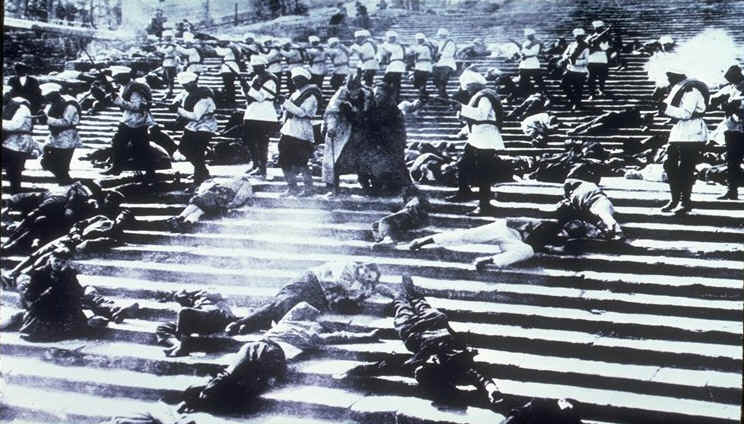18 Jun 2020 | Volume 49.02 Summer 2020
The summer 2020 edition of the Index on Censorship podcast looks at just how much of our privacy might we give away – accidentally, on purpose or through force – in the battle against Covid-19.
The podcast also features the world premiere of a lockdown playlet written exclusively for Index on 
Censorship by Katherine Parkinson. Parkinson, best known for her role as Jen Barber in The IT Crowd, also stars as Sarah in the play, alongside actors Harry Peacock and Selina Cadell.
Arturo di Corinto speaks on the podcast about technological terms that have been used more and more in the crisis while Emma Briant discusses around techniques world leaders are using in the run-up to elections to stifle opposition.
Print copies of the magazine are available via print subscription or digital subscription through Exact Editions. Each magazine sale helps Index on Censorship continue its fight for free expression worldwide.
28 Mar 2018 | Event Reports, News and features
[vc_row][vc_column][vc_column_text]
“We must distinguish the things that are intellectually dishonest and aimed at persuading, which is traditionally called propaganda, and the things where people are trying to give you general information, which doesn’t have the absolute intention of persuading you,” said The Times columnist David Aaronovitch at a panel at the Essex Book Festival.
Aaronovitch, also Index’s chair, was discussing the role of propaganda with leading expert on the darknet and technology Jamie Bartlett and Chinese-British author Xinran, who was the first woman to have a late-night radio show in China.

The panel, chaired by Index on Censorship magazine editor Rachael Jolley, was part of the festival’s Nuclear Option day at the Kelvedon Hatch Secret Nuclear Bunker, a twisted network of dimly lit hallways and musty rooms that lie beneath a field.
Around 75 attendees gathered on March 25 to listen to Index’s panel and attend other workshops, screenings and performances part of the festival. Everyone at the festival was free to roam the enormous bunker and walk amongst Cold War history.
Passing signs that instructed people to “use water sparingly” and dusty machines that co-ordinated evacuation procedures, attendees eventually made their way to a desk-lamp lit room and were seated at long desks with old, monochrome computers.
Looking at the current state of propaganda, Bartlett said “everything has become more emotional and gut-driven,” adding that politics has not become as informed as people had hoped, but now become “heuristic because people are just showered with information”.
Aaronovitch called the inundation of information the “age of cacophony”.
What is emerging, according to Bartlett, is a “horrible new form of soft surveillance that has encouraged a great conformity among people”.
Xinran said China’s current propaganda, especially on social media, along with party control of education and the legal system has led to “one voice” in China, despite age gaps, class, education and geographical residence.

The author talked about her past experiences with censorship and Chinese propaganda when she worked on her radio show in China. She explained that there was a list of restrictions she had to abide by, these included never mentioning the British media, Western religions or love and relationships. The author said during her show she was able to tackle subjects that were previously taboos on Chinese radio.
“My work was stopped for three months when I spoke about homosexuality,” said Xinran. “This type of censorship was very strong until 1997, but it has now escalated to constant censorship, due to social media.”
Looking at the future of propaganda and its direction, Bartlett added that he can “see much more reliance on coercive digital types of surveillance being absolutely necessary just to maintain some type of law and order in society, especially online, which could make us a much more authoritarian society”.
This led Bartlett to predict that “already authoritarian countries are going to become much more so, and already very free countries are going to become even more free to the point where it might collapse”.
He believes we are shifting to a “Huxleyan society,” which Aaronovitch called the “algorithmic society”. Both felt one big question was, who governs the algorithms?
Aaronovitch noted that it depended on who was controlling the algorithms, saying that if the EU requested that Google to reveal its algorithms, it would be problematic; however, governmental algorithms used for policing in a democratic society were essential.
With reference to the Cambridge Analytica scandal, which was mentioned numerous times during the panel, Bartlett noted that the worry over “Cambridge Analytica’s 5,000 data points on every single American doesn’t compare to what’s coming”.
“We are going to be creating a lot more data in the future,” said Bartlett. “And it is going to be shared and it is going to be used by political actors.”
Aaronovitch advised the audience that the best way to combat propaganda is to ask yourself, “‘Am I wrong?’. The point is to ensure no one is “completely blinded by initial preferences”.
Similar to Aaronovitch’s warning to predisposed biases, Xinran calls for “independent thinking,” and equated the consumption of information with eating.
“In Chinese we say you become what you eat,” said Xinran. “And your brain is the same way. You become what you are by what you believe”.
Hats off to @EssexBookFest! An incredible day at the Secret Nuclear Bunker. Brilliant discussion with @IndexCensorship, @JamieJBartlett, @DAaronovitch, @londoninsider and #Xinran, topped off with a silent disco of music banned from Estonia, with obligatory gherkins and vodka 👍 pic.twitter.com/HVtfrVDRb1 — Radical ESSEX (@RadicalEssex) 26 March 2018
[/vc_column_text][/vc_column][/vc_row][vc_row][vc_column][vc_basic_grid post_type=”post” max_items=”4″ element_width=”6″ grid_id=”vc_gid:1522237614911-7109bbff-bdcf-1″ taxonomies=”2631″][/vc_column][/vc_row]
8 Aug 2017 | Artistic Freedom, Magazine, News and features, Russia, Volume 46.02 Summer 2017
[vc_row][vc_column][vc_custom_heading text=”Influential Soviet director Sergei Eisenstein is often portrayed as the godfather of propaganda in film. David Aaronovitch argues in the summer 2017 issue of Index on Censorship magazine that historical drama can also be manipulative when it ignores details of the past”][vc_row_inner][vc_column_inner][vc_column_text]

A still from Sergei Eisenstein’s 1925 film, Battleship Potemkin, portraying a massacre that never happened. Credit: Wikimedia
[/vc_column_text][/vc_column_inner][/vc_row_inner][/vc_column][/vc_row][vc_row][vc_column][vc_column_text]
My friend, a writer, reminded me of the English romantic poet John Keats’s axiom that “we hate poetry that has a palpable design upon us”. You could say, though, that Lenin and Mussolini – at least when it came to the poetry of film – knew differently. “Of all the arts, for us,” said Lenin, “the cinema is the most important”. “For us” meaning, of course, for the ruling Bolsheviks in the aftermath of the October 1917 revolution. When the Italian dictator Mussolini’s new super studios were opened in 1936 a sign was erected over the gate reading “Il cinema è l’arma più forte”, “cinema is the strongest weapon”.
It was George Orwell, not a dictator (though they doubtless would smilingly have agreed with him) who wrote that, “he who controls the past controls the future. He who controls the present controls the past.” It is pretty obvious that the way the powerful medium of film depicts the “then” has important implications for what people can be brought to believe about the “now”.
I was brought up partly on films made in the Soviet Union and saw some of the most celebrated early movies when I was young. The director Sergei Eisenstein was the most famous name and before I was 12 I’d seen almost all his films, from the silent Strike made in 1924 to the extraordinarily ambivalent and terrifying two-part classic Ivan the Terrible. Every single one of them can be said to have had some kind of agenda that dovetailed – sometimes perfectly, sometimes awkwardly – with that of the Soviet state.
[/vc_column_text][vc_row_inner][vc_column_inner width=”1/4″][vc_icon icon_fontawesome=”fa fa-quote-left” color=”custom” align=”right” custom_color=”#dd3333″][/vc_column_inner][vc_column_inner width=”3/4″][vc_custom_heading text=”The massacre on the Odessa steps (once seen, never forgotten) from the movie Potemkin didn’t actually happen” google_fonts=”font_family:Libre%20Baskerville%3Aregular%2Citalic%2C700|font_style:400%20italic%3A400%3Aitalic”][/vc_column_inner][/vc_row_inner][vc_column_text]
The two that were most obviously about Bolshevism and Russia were The Battleship Potemkin, dealing with events in the city of Odessa in 1905, and October, an account of the “ten days that shook the world” – the Bolshevik seizure of power – in Petrograd (St Petersburg) in 1917.
Both deploy Eisenstein’s famous techniques of intercutting, juxtaposition and montage to create mood and drama. Sometimes cutaways of objects or expressions are inserted to refer obliquely to what the viewer is supposed to think of the person or the moment being depicted.
And in both films the actual history is bent for the purposes of the filmmaker. The massacre on the Odessa steps (once seen, never forgotten) from the movie Potemkin didn’t actually happen. The film version of the storming of the Winter Palace in October involved many more actors than the actual event itself. And October was criticised in Keatsian terms by no less a luminary than Lenin’s widow, Nadezhda Konstantinovna Krupskaya.
The full article by David Aaronovitch is available with a print or online subscription.
[/vc_column_text][/vc_column][/vc_row][vc_row][vc_column][vc_custom_heading text=”Film and the Soviet state”][vc_column_text]
Sidebar by Margaret Flynn Sapia
[/vc_column_text][vc_video link=”https://www.youtube.com/watch?v=3UQMg3saU4Q&t=1s” title=”Strike (1925)”][vc_column_text]The Soviet version of Russian history had two goals: to legitimise the rise and rule of the current government, and to instil its values into future generations. Strike, the first film directed by Sergei Eisenstein, undoubtedly does both. The film, set before the revolution, tells the story of a group of factory workers as they rise up against their abusive management. It begins with a quote by Lenin – “The strength of the working class is organisation” – and ends with a violent strike cross cut with the slaughter of animals. From the first frame to the last, the message is clear.[/vc_column_text][vc_video link=”https://www.youtube.com/watch?v=JcJkHCihTmE” title=”Ivan the Terrible (1944)”][vc_column_text]It is fitting that Joseph Stalin regarded Tsar Ivan IV as his role model, given that the two men men are renowned as two of Russia’s cruelest and most feared leaders. Directed by Eisenstein and commissioned by Stalin himself, Ivan the Terrible takes a stab at telling Ivan’s story in a way that flatters the Stalin regime. The plot portrays the boyars, the highest of bourgeois aristocracy, as internal enemies seeking to undermine the singular strength of Ivan’s leadership, a less-than-subtle parallel for the one-party Soviet state of the 1940’s.[/vc_column_text][vc_video link=”https://www.youtube.com/watch?v=kS5kzTbNKjs” title=”Battleship Potemkin (1925)”][vc_column_text]Like a dozen other Soviet films, The Battleship Potemkin depicts the horrors of the tsarist regime and a subsequent popular revolt. It dramatises the true story of a 1905 mutiny by the crew on a Russian battleship, but its most famous and enduring scene, the massacre on the Odessa steps, was entirely invented. However, unlike many of its comrades, this movie was internationally celebrated for its technical excellence, and was ranked as the 11th best film of all time in a 2017 BFI critics poll. Through the film’s five acts, Eisenstein demonstrates that propaganda and art are not mutually exclusive, and that the confines of oppression can sometimes breed incredible creativity.[/vc_column_text][vc_video link=”https://www.youtube.com/watch?v=riOLSslKvxU” title=”October: 10 Days That Shook the World (1928)”][vc_column_text]A retelling of Russia’s 1917 Revolution, this film creates a fascinatingly skewed representation of the Soviet Union’s rise. While the series of major events in the film is historically accurate, the depictions of Soviet leaders and opposition give the film’s biases away, as key facets of character and decisions are highlighted and hidden. When watching the film, pay special attention to the portrayals of Lenin and the Bolsheviks. [/vc_column_text][vc_video link=”https://www.youtube.com/watch?v=R-QBqT9RQAM” title=”Panfilov’s 28 Men (2016)”][vc_column_text]Panfilov’s 28 Men demonstrates how Russian manipulation of history did not end with the Soviet Union. Released in 2016, this film is based on a famous but disputed incident in World War II wherein a small group of Russian soldiers purportedly warded off a wave of Nazi tanks and soldiers, all dying in the process. The events were heavily embellished by Soviet propagandists and later debunked, but the film based on them was partially funded by the Russian Ministry of Culture and is widely advertised as an accurate depiction of historical events. Times change, but the Russian regime continues to use cinema to its benefit.[/vc_column_text][/vc_column][/vc_row][vc_row][vc_column][vc_column_text]
This article is published in full in the Summer 2017 issue of Index on Censorship magazine. Print copies of the magazine are available on Amazon, or you can find information about print or digital subscriptions here. Copies are also available at the BFI, the Serpentine Gallery, MagCulture, (London), News from Nowhere (Liverpool), and Home (Manchester). Each magazine sale helps Index on Censorship continue its fight for free expression worldwide
[/vc_column_text][/vc_column][/vc_row][vc_row][vc_column][vc_custom_heading text=”From the Archives”][vc_row_inner][vc_column_inner width=”1/3″][vc_single_image image=”80560″ img_size=”213×289″ alignment=”center” onclick=”custom_link” link=”http://journals.sagepub.com/doi/pdf/10.1177/0306422014523227″][vc_custom_heading text=”Reel Drama: WWII propaganda” font_container=”tag:p|font_size:24|text_align:left” link=”url:http%3A%2F%2Fjournals.sagepub.com%2Fdoi%2Fpdf%2F10.1177%2F0306422014523227|||”][vc_column_text]March 2014
David Aaronovitch argues that all’s fair in war against fascist dictatorship, including seducing the United States into war with pretty faces and British accents.[/vc_column_text][/vc_column_inner][vc_column_inner width=”1/3″][vc_single_image image=”89184″ img_size=”213×289″ alignment=”center” onclick=”custom_link” link=”http://journals.sagepub.com/doi/pdf/10.1080/03064220512331339706″][vc_custom_heading text=”The ferghana canal” font_container=”tag:p|font_size:24|text_align:left” link=”url:http%3A%2F%2Fjournals.sagepub.com%2Fdoi%2Fpdf%2F10.1080%2F03064220512331339706|||”][vc_column_text]February 2005
The first 145 shots of a shooting-script by Sergei Eistenstein, a prologue to the modern drama of Uzbekistan’s reclamation of its desert wastes.[/vc_column_text][/vc_column_inner][vc_column_inner width=”1/3″][vc_single_image image=”98486″ img_size=”213×289″ alignment=”center” onclick=”custom_link” link=”http://journals.sagepub.com/doi/pdf/10.1080/03064229108535073″][vc_custom_heading text=”Iron fist, silver screen” font_container=”tag:p|font_size:24|text_align:left” link=”url:http%3A%2F%2Fjournals.sagepub.com%2Fdoi%2Fpdf%2F10.1080%2F03064229108535073|||”][vc_column_text]March 1991
An examination of how film is an arm of party propaganda in Saddam Hussein’s Iraq, highlighting the 1973 Law on Censorship of Foreign Films.[/vc_column_text][/vc_column_inner][/vc_row_inner][vc_separator][vc_row_inner][vc_column_inner width=”1/3″][vc_custom_heading text=”100 Years On” font_container=”tag:p|font_size:24|text_align:left” link=”url:https%3A%2F%2Fwww.indexoncensorship.org%2F2017%2F06%2F100-years-on%2F|||”][vc_column_text]Through a range of in-depth reporting, interviews and illustrations, the summer 2017 issue of Index on Censorship magazine explores how the consequences of the 1917 Russian Revolution still affect freedoms today, in Russia and around the world.
With: Andrei Arkhangelsky, BG Muhn, Nina Khrushcheva[/vc_column_text][/vc_column_inner][vc_column_inner width=”1/3″][vc_single_image image=”91220″ img_size=”medium” alignment=”center” onclick=”custom_link” link=”https://www.indexoncensorship.org/2017/06/100-years-on/”][/vc_column_inner][vc_column_inner width=”1/3″][vc_custom_heading text=”Subscribe” font_container=”tag:p|font_size:24|text_align:left” link=”url:https%3A%2F%2Fwww.indexoncensorship.org%2Fsubscribe%2F|||”][vc_column_text]In print, online. In your mailbox, on your iPad.
Subscription options from £18 or just £1.49 in the App Store for a digital issue.
Every subscriber helps support Index on Censorship’s projects around the world.
 SUBSCRIBE NOW[/vc_column_text][/vc_column_inner][/vc_row_inner][/vc_column][/vc_row]
SUBSCRIBE NOW[/vc_column_text][/vc_column_inner][/vc_row_inner][/vc_column][/vc_row]





